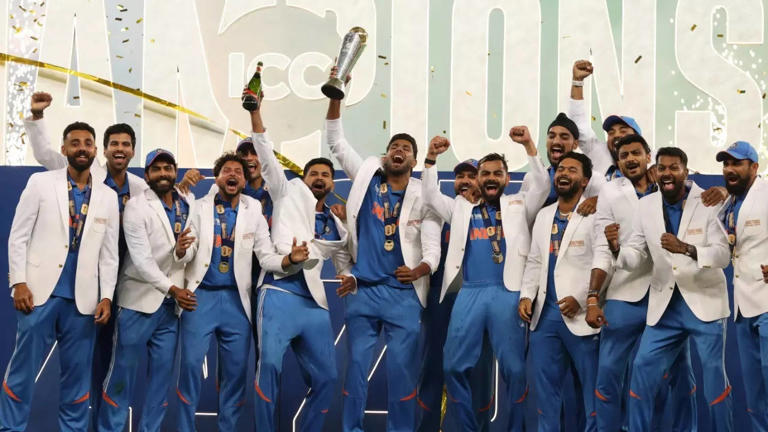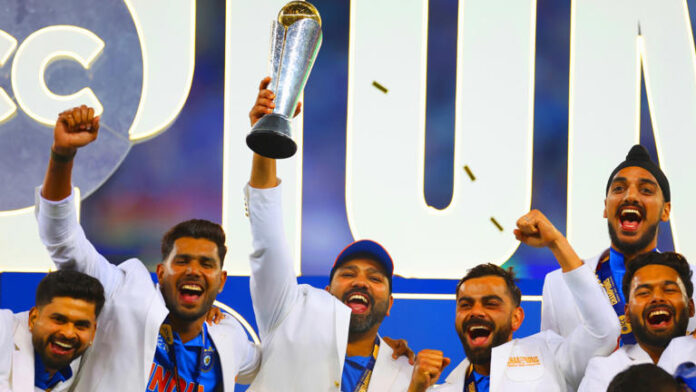
blow for pcb as icc unlikely to offer any clarification over snub at champions trophy presentation ceremony NEWS
Scoop for PCB as ICC set not to Give Any Clarification on Snub During
Champions Trophy Presentation Ceremony
In a dramatic twist of fate, the Pakistan Cricket Board (PCB) is in for a big setback as the International Cricket Council (ICC) looks all set not to provide any clarification on a snub during Champions Trophy 2017 presentation ceremony. The row has generated enough eyebrows and drama within the cricketing community. For the PCB, this might be a turning point, one that can have far-reaching consequences for their relationship with the ICC and their reputation in the international cricketing world.
Background of the Incident
The Champions Trophy 2017, which took place in June, was a much-awaited tournament. Teams such as India, Pakistan, South Africa, and others convened in England for what was expected to be a thrilling battle of international cricket. Pakistan, led by Sarfaraz Ahmed, went against all predictions to win the title, beating India in the final by 180 runs. The win was considered a miracle, particularly for Pakistan who had a low ranking and were not consistent in their performances prior to the tournament.
But in the midst of celebration and euphoria, there was a glaring problem during the final presentation ceremony. As the players champagne-corked their triumph and the trophy was presented to captain Sarfaraz Ahmed, the exclusion of PCB Chairman Shaharyar Khan from the central presentation ceremony was greeted with incredulity. The slight was unexpected, not just for Khan but for cricket fans, experts, and commentators who perceived this as an insult to the PCB and to Pakistan’s cricketing reputation.
The controversy broke out after the fact that the PCB chairman had been denied a seat at the primary podium from where principal ICC officials were awarding trophies and medals came to light. Instead, he was made to stand at a secondary podium, which was perceived by most as an insult to the board as well as the country’s cricket leadership. In a country that had just achieved an unforgettable win, this gesture came as a jarring shock.
The PCB’s Response and the Call for Clarification
The moment the snub became known, the PCB initiated an official investigation into the incident, demanding an explanation from the ICC. It was obvious that the board was angry and felt that the leadership of its board had been insulted. Shaharyar Khan and senior officials expressed themselves, pointing out that the contribution of the PCB to Pakistan’s victory should have been recognized during the ceremony.
The PCB vented its displeasure through different media outlets. Khan showed his disappointment with the way the ceremony had been conducted, saying that it was vital for the cricketing fraternity to acknowledge the massive role played by boards in developing the game and in supporting teams. He went on to say that he had not received any advance notice that he would be absent from the major presentation ceremony.
As the days passed, the issue started getting more attention, with many past cricketers and commentators also opining about the matter. Most of Pakistan’s past cricketers along with Indian and international cricket commentators criticized the ICC publicly for their perceived lack of respect and dignity towards the PCB. Fans across Pakistan and other cricket-loving nations took to the social media arena to support the PCB, asking the ICC for accountability.
The PCB called for an official clarification from the ICC, in the hope that there would be some statement or a clarification issued. They looked for openness in organizing the ceremony and an explanation for why their chairman was left out. That the matter had caused so much attention in the media further placed the ICC under pressure to respond.
ICC’s Position: Silence and Speculation
Nonetheless, regardless of the intensifying outcry, the ICC said nothing about the issue. Such silence only continued to create additional speculation. The ICC’s quiet gave rise to a sense of confusion, and many were wondering if the group was consciously declining to explain what happened. A few assumed there could have been logistical explanations, such as inescapable time constraints or an accidental forgetfulness. Others, though, thought that it was a calculated snub, meant to convey a message to the PCB and maybe, Pakistan cricket.
This silence by the ICC was interpreted by many as reluctance to confront the matter directly. Although the cricketing organization made customary post-match remarks and congratulated Pakistan on their win, no public recognition or explanation was offered for the snub that had marred what could have otherwise been a time of celebration for the nation. For the PCB, this was a clear indication that their complaints were not being seriously considered.
The uncertainty has put the PCB in a tricky situation. Do they push for answers further, risking more isolation from the ICC, or do they drop the issue, possibly at the cost of their dignity and reputation in the world of cricket? For an entity like the PCB, whose standing is directly connected to Pakistan’s cricketing performance, this was no simple call.
The Political Underpinnings
To contextualize the seriousness of the snub, one has to think in terms of political implications. Cricket, particularly on the subcontinent, has traditionally been a game inextricably linked with national pride, and the PCB’s involvement in this was symbolic as much as it was instrumental to Pakistan’s success. The choice to ignore Shaharyar Khan might be interpreted as a tactical decision within the grand politics of global cricket management, a demure method that would erode Pakistan’s power in the sport’s corridors of power.
It is also important to mention that the ties between the ICC and certain cricketing boards, especially the PCB, have usually been tense based on differences in priorities, governing frameworks, and monetary issues. Although the ICC has succeeded in globalizing the game, its rulings and actions at times have been perceived as propping up larger cricketing nations like Australia and India at the expense of smaller nations such as Pakistan. The Champions Trophy omission could be an extension of these pre-existing tensions, pointing to the imbalance in the way the different cricket boards are treated by the ICC.
The Future of Pakistan’s Relationship with the ICC
As things are, the PCB’s expectations of a substantive clarification from the ICC appear less and less likely. With the ICC remaining mum on the matter, the PCB now has to choose how to act in the wake of this seeming affront. Will they keep demanding transparency and an apology, or will they opt to move on in the best interests of Pakistan cricket?
In the long term, this incident can have broader implications for the PCB’s future interactions with the ICC. The board might decide to take a more aggressive stance in future ICC events, insisting that their voice be heard and their concerns respected. Alternatively, they might decide to take a more diplomatic approach, opting to let the matter rest in the hope of maintaining smoother relations in the future.
One thing is clear: the Champions Trophy snub, as it seems on the surface, has cast a very long shadow over Pakistan cricket’s association with the ICC. While the PCB waits to see what comes next, the controversy stands as a reminder of the intricate politics involved in international cricket.

